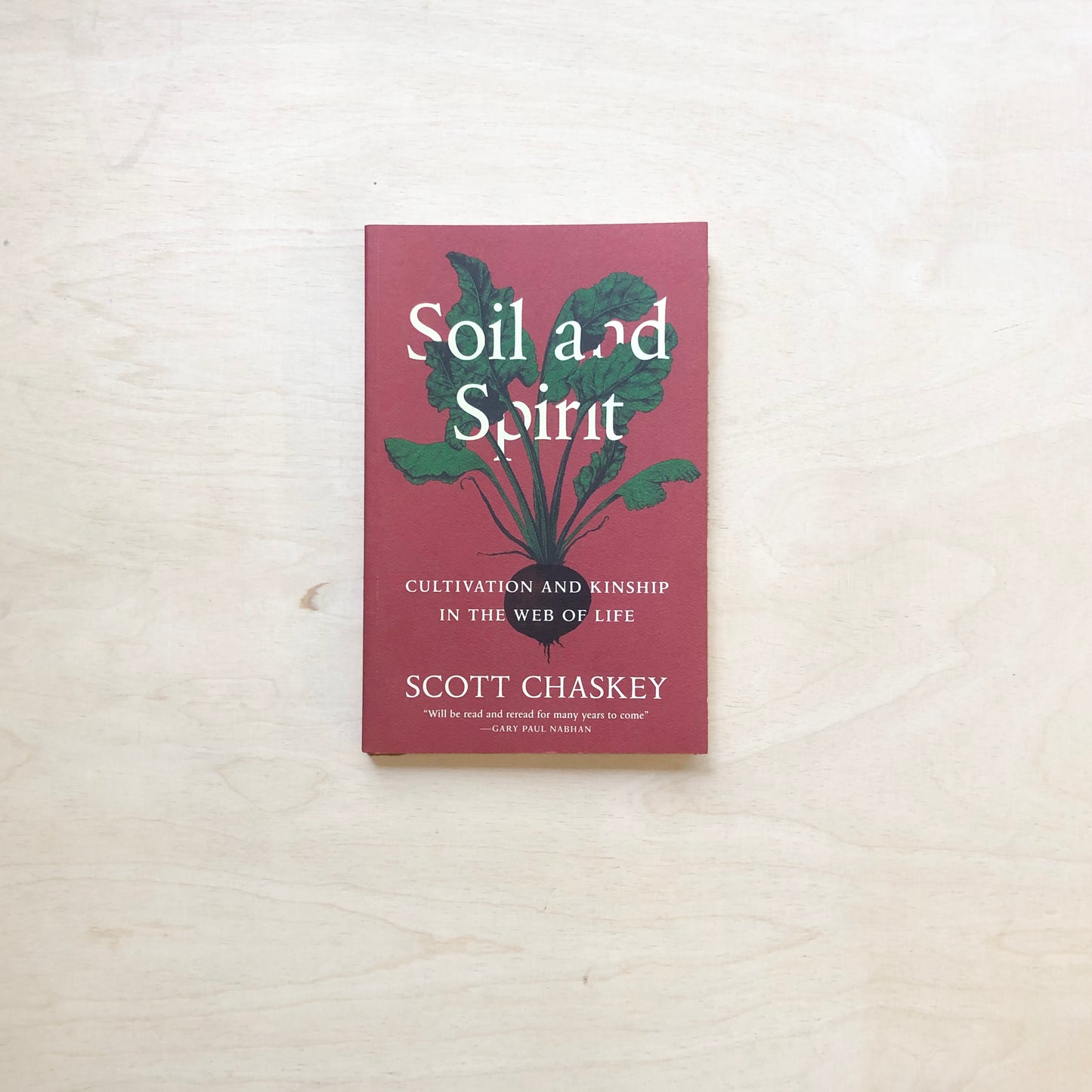Soil and Spirit - Cultivation and Kinship in the Web of Life
Soil and Spirit - Cultivation and Kinship in the Web of Life
Scott Chaskey
Milkweed Editions
2023
9781639550890Softcover
21,5 x 14 x 1,5 cm
243 pages
Regular price
19,00 €
Regular price
Sale price
19,00 €
Unit price
per
Tax included.
Couldn't load pickup availability
As a farmer with decades spent working in fields, Scott Chaskey has been shaped by daily attention to the earth. A leader in the international Community Supported Agriculture (CSA) movement, he has combined a longstanding commitment to food sovereignty and organic farming with a belief that humble attention to microbial life and diversity of species provides invaluable lessons for building healthy human communities.
Along the way, even while planning rotations of fields, ordering seeds, tending to crops and their ecosystems, Chaskey was writing. And in this lively collection of essays, he explores the evolution of his perspective—as a farmer and as a poet. Tracing the first stage in his development back to a homestead in Maine, on the ancestral lands of the Abenaki, he recalls learning to cultivate plants and nourish reciprocal relationships among species, even as he was reading Yeats and beginning to write poems. He describes cycling across Ireland, a surprise meeting with Seamus Heaney, and, later, farming in Cornwall’s ancient landscape of granite, bramble, and windswept trees. He travels to China for an international conference on Community Supported Agriculture, reading ancient wilderness poetry along the way, and then on to the pueblo of Santa Clara in New Mexico, where he joins a group of Indigenous women harvesting amaranth seeds. Closer to home on the Southfork of Long Island, he describes planting redwood saplings and writing verse under the canopy of an American beech.
“Enlivened by decades of work in open fields washed by the salt spray of the Atlantic”—words that describe his prose as well as his vision of connectedness—Scott Chaskey has given us a book for our time. A seed of hope and regeneration.
Along the way, even while planning rotations of fields, ordering seeds, tending to crops and their ecosystems, Chaskey was writing. And in this lively collection of essays, he explores the evolution of his perspective—as a farmer and as a poet. Tracing the first stage in his development back to a homestead in Maine, on the ancestral lands of the Abenaki, he recalls learning to cultivate plants and nourish reciprocal relationships among species, even as he was reading Yeats and beginning to write poems. He describes cycling across Ireland, a surprise meeting with Seamus Heaney, and, later, farming in Cornwall’s ancient landscape of granite, bramble, and windswept trees. He travels to China for an international conference on Community Supported Agriculture, reading ancient wilderness poetry along the way, and then on to the pueblo of Santa Clara in New Mexico, where he joins a group of Indigenous women harvesting amaranth seeds. Closer to home on the Southfork of Long Island, he describes planting redwood saplings and writing verse under the canopy of an American beech.
“Enlivened by decades of work in open fields washed by the salt spray of the Atlantic”—words that describe his prose as well as his vision of connectedness—Scott Chaskey has given us a book for our time. A seed of hope and regeneration.

